Overview
The Vita Flex debit card may be declined for a variety of reasons, the most common of which are detailed below.
Merchant Code Issues
The card authorizes charges based on two factors: The Merchant Category Code (MCC) of the credit card terminal and the type of pre-tax account. If a provider does not use a code that matches the type of services you are receiving, the card may be declined. One common example is trying to purchase eligible over the counter medication at a grocery store. While the grocery store may classify the item as eligible, their merchant code identifies them as a grocery store - not a medical or pharmacy provider. Thus, the transaction would be declined.
Sometimes the merchant code for the machine or website running the card is not correctly identifying the merchant as an eligible provider. This could be due to the Point of Sale (POS) system being used by the merchant or because the product being purchased may not be eligible under that merchant code.
Balance
If your account balance is below the amount you are trying to charge, the card will automatically decline the transaction. In rare circumstances, the merchant systems will allow a partial amount to be approved, but this is not common.
Repayment Due
A repayment occurs when a charge has been made on your debit card and that charge requires documentation to be submitted after the fact. When this occurs, you will receive a specific notification requesting the documentation. If you do not respond to the notification and documentation is not provided, the expense will be repaid to your pre-tax account. This is known as having a repayment due.
If your account has an outstanding repayment, no new charges can be made on your debit card. Your card will be suspended until the claim or repayment is resolved. To identify the specific actions needed on the account, please log in to the Vita Flex consumer portal and go to the Tasks section.
Brand New Cards
If you just received your card and it is declining for purchases, this could be due to the plan effective date or the first payroll date. It could be that you are trying to charge an expense prior to your effective date or prior to when your payroll salary reductions have been processed. If you think this is the case, you should contact the Vita Concierge for assistance. The Vita Concierge may be reached at (650) 966-1492 or help@vitamail.com.
Commute Spending Limit
Transit and Parking pre-tax accounts have monthly spending limits established by the IRS. If the charge would put your cumulative monthly transactional amount over the monthly maximum, the card will decline.
If you find yourself consistently running into this limit, you may choose to add post-tax commute funds to your account as an additional payroll deduction. Post-tax funds added in this way are not subject to the monthly spending limit.
Purchasing Commute Passes at Non-Transit Merchants
Many stores and merchants sell commute passes for the convenience of consumers. However, if you try to purchase a commute pass from a general retailer with your Vita Flex debit card, such as Walgreens or Safeway, the transaction will be declined. This is because the merchant code reflects either a pharmacy or grocery store, and it is not registered as a commute provider.
Amazon.com
The product being purchased from Amazon (or any other online retail provider) must be coded as an eligible item. Otherwise your card will decline.
Caltrain
Caltrain does not allow commute cards to be used at their ticketing machines, but they do allow commute cards to be used at Caltrain headquarters. As an alternative, you may load a Clipper card and use funds through Clipper to purchase products from Caltrain. While this solution may be a bit cumbersome, it does provide a workaround for Caltrain riders. This information is listed on their website: http://www.caltrain.com/Fares/howtobuy/Ticket_Machine.html.
Terminating Employment/Losing Benefits
Your debit card will be disabled when your benefits are terminated. Most often, your benefits are only active through your final date of employment. To verify when your benefits terminate, please refer to your Summary Plan Description located on the consumer portal. Even if your debit card is disabled, you may still access the funds in your account for expenses incurred with valid dates of services by submitting eligible claims online. Rather than being able to use your debit card upfront, you would be reimbursed via a mailed check, or via Direct Deposit if you have a bank account on file. Details may be found in your Plan Description Document which can be accessed through the Vita Flex portal.
If you have a remaining balance and do not have eligible services that can be claimed, the funds may be forfeited. In certain circumstances, you may elect to continue your coverage under COBRA. Please refer to your Summary Plan Description or contact the Vita Concierge if you have specific questions about termination of coverage.
If you have a Health Savings Account, you will be contacted about your options for continuing an individual account or transferring the funds to another Health Savings Account outside of Vita. Should you wish to continue your HSA with Vita, there is a $6 per month maintenance fee.
A Reimbursement Option
If you cannot use your debit card, you may file a claim and receive reimbursement for upfront payments. This can be done online via the Vita Flex consumer portal or by completing and returning a Vita Flex claim form. There are often critical deadlines associated with reimbursements. For example, when an expense is incurred and when the claim or final documentation is submitted. Please refer to your Plan Description Document for deadlines, as they cannot be extended.
References
Vita Flex Consumer Portal:
Vita Concierge Team:
The Vita Concierge may be reached Monday – Friday, 8:00 a.m. – 5:00 p.m. Pacific time, at (650) 966-1492 or help@vitamail.com.


